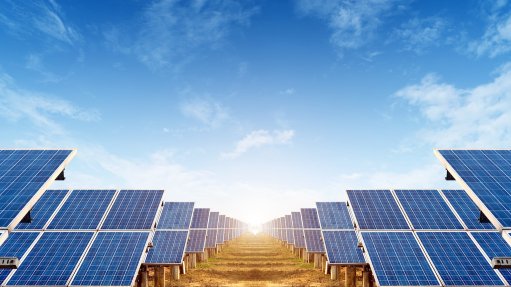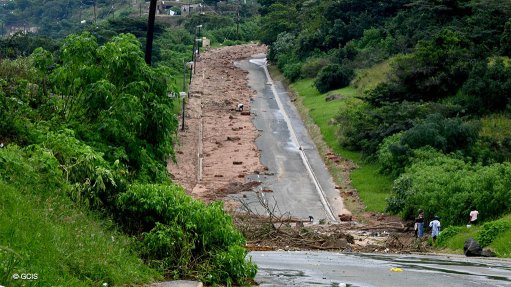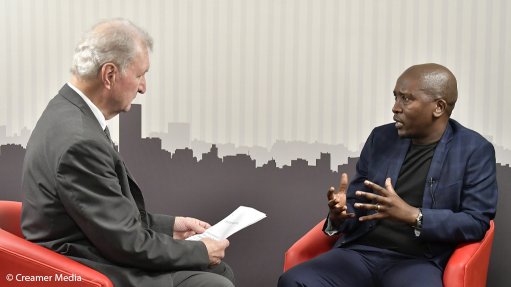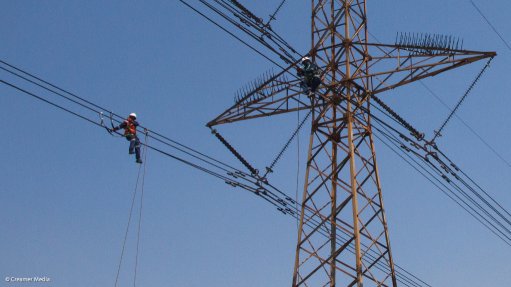Progress being made under Operation Vulindlela
The Presidency and the National Treasury on December 14 released a progress report on the implementation of economic reforms during the third quarter to mark two years since the establishment of Operation Vulindlela.
Among the highlights were that six projects, totalling 784 MW, signed project agreements under Bid Window (BW) 5 of the Renewable Energy Independent Power Producer Procurement Programme (REIPPPP).
The report said new capacity to be procured under BW 6 of the REIPPPP had also been increased from 2 600 MW to 4 200 MW.
Further, Operation Vulindlela facilitated the procurement of independent power by municipalities, following the amendment to the Regulations on New Generation Capacity. The National Treasury has issued a Municipal Finance Management Act circular, which provides guidance to municipalities in this regard.
The operation also drove progress on the unbundling of Eskom into separate entities for generation, transmission and distribution, with the establishment of the National Transmission Company of South Africa as a separate subsidiary.
The process of legal separation of the entity is under way, alongside work by Treasury to address Eskom’s debt.
A further achievement was the finalisation of the Electricity Regulation Amendment Bill, which will establish a competitive electricity market for the first time, enabling multiple generators to compete on a level playing field.
In addition, the draft amendment to Schedule 2 of the Electricity Regulation Act was published to remove the licensing threshold for generation facilities and enable private investment at a larger scale.
The pipeline of private sector generation projects has grown to 100 projects with a combined capacity of more than 9 000 MW at various stages of development, the report showed.
Another key achievement was the publication of a new Ministerial determination for the procurement of over 18 000 MW of new generation capacity from wind, solar photovoltaic and battery storage, as well as developing a standard offer programme for Eskom to procure up to 1 000 MW of additional capacity from existing generators, contingent on market response.
Eskom has also signed agreements for the commercial use and lease of its land with four independent power producers, which will facilitate the development of up to 2 000 MW of generation capacity, with sufficient grid capacity already in place.
The current focus areas for Operation Vulindlela include ensuring that additional projects from existing BWs proceed to financial close and that a further request for proposals be issued for 513 MW of battery storage. The launch of the standard offer programme and emergency generation programme are also priorities.
However, the Presidency and Treasury conceded that the objective of improving Eskom’s energy availability factor to above 70% was facing critical challenges and was unlikely to be achieved.
Additionally, reform to support procuring new generation capacity in terms of the Integrated Resource Plan 2019 and addressing institutional inefficiencies in municipal electricity distribution are facing significant challenges, with intervention required.
Reforms to implement the energy action plan and enable municipalities to procure power from independent power producers have also been delayed or are off-track, although work is being done.
WATER REFORMS
Reforms in the water sector are aimed at improving governance and investment in water infrastructure to drive efficiency and improvement of a sustainable supply of quality water. Operation Vulindlela has been providing technical support to the Department of Water and Sanitation to effectively implement a plan for the granting of water-use licences (WULs) within reduced timeframes.
In the 2021/22 financial year, the department was able to finalise 613 out of the 971 WUL applications, which represent a partial achievement of 63%, the report noted.
"Two key reforms in the water sector have progressed in the past quarter, which include the gazetting of the Bill for the Establishment of a National Water Infrastructure Agency and the National Pricing Strategy for Raw Water Use Charges. Both policies are currently in a period of 90 days of public consultation, having been published for public comment.
Further, the Water Partnerships Office is operational following an agreement between the DWS and the Development Bank of Southern Africa, which will enable greater private sector participation in the development and maintenance of water infrastructure while the agency is established. Recruitment for the head of the unit at the DBSA is under way, the Presidency and Treasury said.
Further, the revival of the Blue Drop, Green Drop and No Drop water-quality monitoring system have been a critical step through Operation Vulindlela to reinstate the data to measure, monitor and improve the quality of water services at municipal level. These reports have been published on the DWS website.
FUTURE FOCUS
Meanwhile, Operation Vulindlela has added four new reforms to its mandate. These are creating an appropriate legislative framework for hemp and cannabis; enabling the devolution of passenger rail functions to local government; titling reform for low-cost housing; and the development of a fit-for-purpose procurement regime for State-owned entities.
During the fourth quarter of 2022 and the first quarter of 2023, the operation aims to make additional progress on the Energy Action Plan, including implementing a feed-in tariff and tax incentives for rooftop solar, establishing a one stop shop for energy projects and reducing timeframes for approval processes by 50%, and appointing an independent board to operationalise the transmission entity and table the Electricity Regulation Amendment Bill in Parliament.
The initiative also aims to implement private sector participation in container terminals and freight rail to address logistics bottlenecks (including incorporating lessons from the initial pilot for third party access), and complete the analogue switch-off and digital migration.
It also aim to table the National Water Resources Infrastructure Agency Bill in Parliament and establish a Water Partnerships Office to improve investment in water resources, as well as announce changes to the work visa system, including new visa categories.
Vulindlela also aims to initiate changes to the legal and regulatory framework for hemp and cannabis, and establish a joint steering committee on titling reform and demonstrate progress in addressing the backlog of title deeds for subsidised housing.
The potential upside from implementing the reforms include ensuring energy security, reducing red tape and lowering the cost of doing business through improved transport and communication infrastructure, modelling by Operation Vulindlela showed.
"Reforms help create an enabling environment for improved private-sector participation. Confidence levels improve, supporting a marked easing of sovereign risk and lowering economy-wide borrowing costs. These changes bolster private investment levels and consumer demand.
The cumulative effect of these gains is compounded over the long-term, raising potential growth and lifting real gross domestic product above the medium-term budget policy statement 2022 baseline by a cumulative R438-billion by 2030, the report stated.
Comments
Announcements
What's On
Subscribe to improve your user experience...
Option 1 (equivalent of R125 a month):
Receive a weekly copy of Creamer Media's Engineering News & Mining Weekly magazine
(print copy for those in South Africa and e-magazine for those outside of South Africa)
Receive daily email newsletters
Access to full search results
Access archive of magazine back copies
Access to Projects in Progress
Access to ONE Research Report of your choice in PDF format
Option 2 (equivalent of R375 a month):
All benefits from Option 1
PLUS
Access to Creamer Media's Research Channel Africa for ALL Research Reports, in PDF format, on various industrial and mining sectors
including Electricity; Water; Energy Transition; Hydrogen; Roads, Rail and Ports; Coal; Gold; Platinum; Battery Metals; etc.
Already a subscriber?
Forgotten your password?
Receive weekly copy of Creamer Media's Engineering News & Mining Weekly magazine (print copy for those in South Africa and e-magazine for those outside of South Africa)
➕
Recieve daily email newsletters
➕
Access to full search results
➕
Access archive of magazine back copies
➕
Access to Projects in Progress
➕
Access to ONE Research Report of your choice in PDF format
RESEARCH CHANNEL AFRICA
R4500 (equivalent of R375 a month)
SUBSCRIBEAll benefits from Option 1
➕
Access to Creamer Media's Research Channel Africa for ALL Research Reports on various industrial and mining sectors, in PDF format, including on:
Electricity
➕
Water
➕
Energy Transition
➕
Hydrogen
➕
Roads, Rail and Ports
➕
Coal
➕
Gold
➕
Platinum
➕
Battery Metals
➕
etc.
Receive all benefits from Option 1 or Option 2 delivered to numerous people at your company
➕
Multiple User names and Passwords for simultaneous log-ins
➕
Intranet integration access to all in your organisation

















